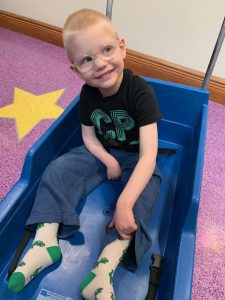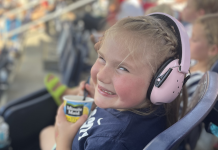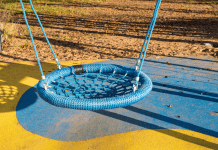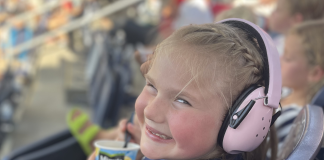When my son, Patrick, was diagnosed with cerebral palsy as a baby, his doctor lifted his forearm and pointed to a spot exactly between his wrist and elbow.
“This is the middle,” he said. “This is where your son will be.”
I didn’t comprehend what he meant at that point. My head was still spinning and sort-of-not-really understanding what cerebral palsy meant for our family.
A few years later, he was diagnosed with autism. Again, I heard from the doctor: “there are three levels of severity–one means an individual is what you know as ‘high-functioning,’ and three means they are ‘severely autistic.’”
“And…” I said, staring blankly at her.
“He’s level two. Right in the middle.”
At that point, I was used to it and tried hard not to laugh inappropriately.
“Got it. The middle.”

When you have a child with special needs, your kid is so often defined by the expectations–or lack thereof–other people have of them. I’ve found that people really internally don’t understand disabilities along that same “forearm spectrum” I first saw so long ago. You’re an elbow or a wrist. You can’t be a freckle between the two.
- People with disabilities are completely paralyzed and unable to walk; or they look almost indistinguishable from their peers. When I ask if there’s an elevator for my moderately-affected son to use, the assumption is laziness, not disability.
- People with disabilities are unable to talk or express themselves; or they are chatty and friendly to everyone. In a world designed to rush, few people have the patience to pause while my son takes extra time to formulate a response.
- People with disabilities are always hospitalized or at the doctor; or they are able to function perfectly well in society without visible medical issues. There is little understanding of the burnout that comes with multiple appointments and constant insurance hassle when your child appears to be smiling and happy.
See where I’m going with this?
We are the vast, lonely middle. And for years now, I have struggled with the weight of the expectations and how my child doesn’t really fit any of them.
- My son can walk, but he requires a brace and he falls and tires easily. Have you ever taken a five year old in public in a stroller? Talk about a lesson in societal expectations!
- My son can talk, but he is not able to articulate clearly and uses an AAC device to help clarify words people don’t understand.
- My son has medical issues and we are often at the doctor, but they are (knock on wood) not life-threatening or terribly interesting to discuss.
- My son is visually impaired but not totally blind. He uses a white cane to navigate safely but can also see books and videos when he is allowed to position them appropriately.
There aren’t support groups for being in the middle. I have joined some groups to hear, “well, at least your son can walk,” and others where I slunk away with my tail between my legs upon realizing that my son simply couldn’t keep up.
And so: we share our story. We talk to people about disability. We speak up and advocate in the classroom and school districts. I post on social media so my friends might understand what our “middle” life looks like. We ask for what we need and tell people why. It’s not always easy and it is, frankly, exhausting to be so vulnerable, but our hope is that we get society to a place that truly understands the full range of disability to improve my son’s future quality of life.















